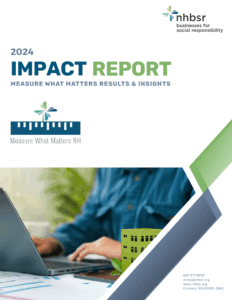
By setting goals and tracking progress, businesses can achieve greater sustainability in a focused and effective way.
Insights from the 2024 Measure What Matters 101 Survey.
The MWM 101 Survey will be offered again in 2026, welcoming both new and returning participants.
Summary
We invite you to explore the 2024 White Paper in detail and learn about the Measure What Matters 101 survey. Participation is free and allows organizations to track progress and identify areas for improvement. Customized reports and recommendations that provide valuable insights on a company’s progress are also available by request at additional cost.
Key Findings
- Plateau in Climate Action: Despite growing awareness, the rate of organizations adopting advanced climate tracking and renewable energy practices has stagnated, underscoring the need for stronger incentives and policy support.
- Resource Disparity: Larger organizations continue to lead the way in sustainability, while smaller businesses require targeted assistance to overcome their barriers.
- Broadening Impact: There is a gradual shift from ad hoc environmental actions to integrated, organization-wide sustainability strategies, though progress is uneven.
- Community and Employee Focus: Investment in employee well-being and community partnerships remains a hallmark of NH businesses’ approach to social responsibility.
Moving Forward
New Hampshire businesses can collectively advance toward greater sustainability and social responsibility by collaborating and sharing knowledge. Each year, the NHBSR Sustainability Awards celebrate the top performers in each impact category identified by the MWM survey. These awards acknowledge the work of NH businesses and inspire others to strive for similar achievements.
Want to know more about MWM?
Watch our FAQs video with organizations that have submitted Measure What Matters.